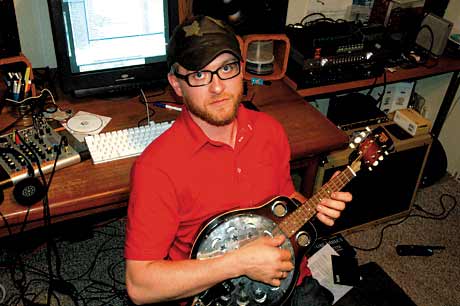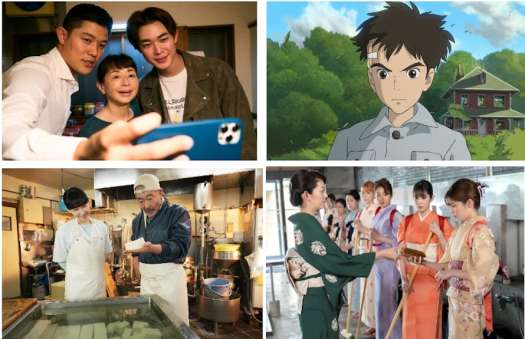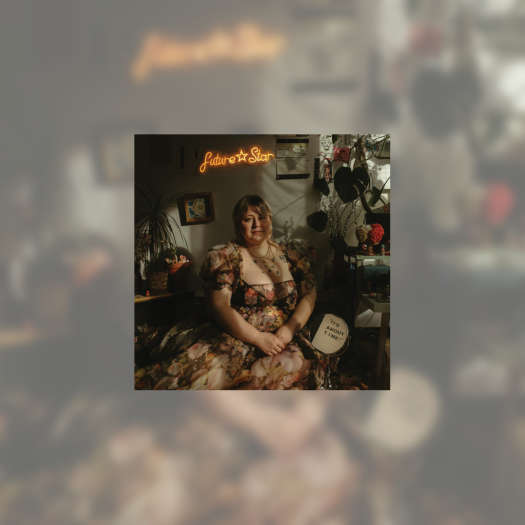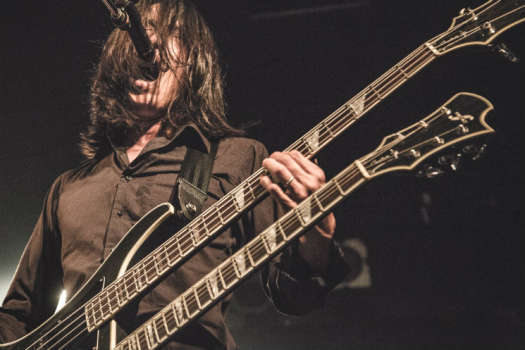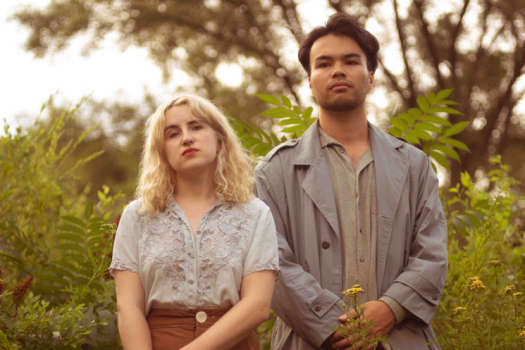Jesse Zubots basement studio is wrapped in a chaotic mess of wires, cords and blinking electronics. Piles of preamps and converters litter the shelves. On the walls hang a Dobro, mandolin and a sharp set of antelope horns. Above the glow of a Mac and its affixed mixing board, a window is cut into the wall; beyond is an adjacent tracking room, where multicoloured Christmas lights illuminate egg cartons that line the recording space. But if you dont watch your step, you may land on Zubots most prized possession: a 200-year-old violin of unknown origin, without which, he says, making music would become nearly impossible. "I dont mind the excitement of chaos. But technically, it might not be such a good idea, says Zubot from this workspace buried deep below his East Vancouver home.
The 32-year-old Saskatchewan farm boy turned avant-garde musician is perhaps best known as one-half of Zubot & Dawson, the Juno Award-winning acoustic roots duo, and as a member of fellow Juno winners Great Uncles of the Revolution, a jazz outfit that took home an award in 2004. But a lot has changed in recent years for the formally trained violinist and mandolin player. Most importantly, he founded Drip Audio, his two-year-old record label that delves into electronica, jazz improv, ambient music and a bit of rocknroll. Currently, its home to Zubots solo work, as well as bands such as Fond of Tigers, LaConnor and ZMF Trio, all of which Zubot plays in, records, produces and mixes. And its this overactive label situation that explains the need for his subterranean sound lab.
"Its a makeshift situation down here, and Im flying by the seat of my pants, he says in his slow prairie drawl. "Technically, this place is still in flux, and to some degree, I like it like that because surprises and interesting things happen when you are working that way. However, its also a little stressful.
This digital home studio may have a crude appearance, but no lack of high-tech gear. Along with ProTools and Logic, Zubot has equipped his studio with a few "essential units namely, a Dangerous 2-BUS LT analog summing mixer and an Apogee Soundcard. For him, these two analog-to-digital conversion devices are vital for keeping instruments sounding as real-to-life as possible.
"Ive been trying to let the music be its own thing and not interfere with it too much, he explains. "I just beef it up a little and make it warmer, and hopefully not destroy it, which is easy to do. But this is part of the excitement: to try things out and see if you fuck it up.
As much as Zubot enjoys keeping analog and acoustic instruments in an unaffected state, he is by no means adverse to electronic sounds and textures. His 2006 solo venture, Dementia, layers a chilly array of digital clicks and clacks over improvised violin and mandolin structures while LaConnor a trio composed of Zubot, Jean Martin and Francois Houle is a warped electro-acoustic outfit that redefines the term "left of centre. "The dilemma is finding the balance with technology so that it doesnt take over your way of making music, he says. "I think its exciting meshing the acoustic analog vibe with the digital thing, and if you do it right, you can actually make digital equipment buzz and come to life.
Zubot says all his studio knowledge comes from being curious and asking questions early in his career. "A lot of musicians arent really interested in the recording process. They just want to do their thing and play their instrument, he says. "But the process and the music have always been equal for me pretty much from the start.
Despite no formal education in recording, Zubot studied classical music for 13 years. From the age of four, his parents took him once a week on the two-hour drive from Mendham, Sask., to Medicine Hat College in Alberta. And as gruelling as this experience could be at times, without it, he says his journey into producing would not have been possible.
"It really helped me get all my basic technical abilities; now I can focus on other stuff like recording, instead of practising and learning my instrument all the time. Also, by opening up the doors when youre young and getting training, technically you have a better chance to make a living as a musician than if you dont go to school, because then it is more of a crap shoot.
While Zubot says the studio has room for improvement which partly just involves a good cleaning and some organisation he plans to record two or three more Drip Audio albums there during the next year. However, with all his time behind being spent in the producers chair, writing his own music has had to play second fiddle, or rather, violin.
But he isnt too worried: "These days, I find producing more exciting and challenging. You can get deep into it and kind of go insane for a few days and have to figure your way back out of it. And hopefully by then, youve pulled something off.
The 32-year-old Saskatchewan farm boy turned avant-garde musician is perhaps best known as one-half of Zubot & Dawson, the Juno Award-winning acoustic roots duo, and as a member of fellow Juno winners Great Uncles of the Revolution, a jazz outfit that took home an award in 2004. But a lot has changed in recent years for the formally trained violinist and mandolin player. Most importantly, he founded Drip Audio, his two-year-old record label that delves into electronica, jazz improv, ambient music and a bit of rocknroll. Currently, its home to Zubots solo work, as well as bands such as Fond of Tigers, LaConnor and ZMF Trio, all of which Zubot plays in, records, produces and mixes. And its this overactive label situation that explains the need for his subterranean sound lab.
"Its a makeshift situation down here, and Im flying by the seat of my pants, he says in his slow prairie drawl. "Technically, this place is still in flux, and to some degree, I like it like that because surprises and interesting things happen when you are working that way. However, its also a little stressful.
This digital home studio may have a crude appearance, but no lack of high-tech gear. Along with ProTools and Logic, Zubot has equipped his studio with a few "essential units namely, a Dangerous 2-BUS LT analog summing mixer and an Apogee Soundcard. For him, these two analog-to-digital conversion devices are vital for keeping instruments sounding as real-to-life as possible.
"Ive been trying to let the music be its own thing and not interfere with it too much, he explains. "I just beef it up a little and make it warmer, and hopefully not destroy it, which is easy to do. But this is part of the excitement: to try things out and see if you fuck it up.
As much as Zubot enjoys keeping analog and acoustic instruments in an unaffected state, he is by no means adverse to electronic sounds and textures. His 2006 solo venture, Dementia, layers a chilly array of digital clicks and clacks over improvised violin and mandolin structures while LaConnor a trio composed of Zubot, Jean Martin and Francois Houle is a warped electro-acoustic outfit that redefines the term "left of centre. "The dilemma is finding the balance with technology so that it doesnt take over your way of making music, he says. "I think its exciting meshing the acoustic analog vibe with the digital thing, and if you do it right, you can actually make digital equipment buzz and come to life.
Zubot says all his studio knowledge comes from being curious and asking questions early in his career. "A lot of musicians arent really interested in the recording process. They just want to do their thing and play their instrument, he says. "But the process and the music have always been equal for me pretty much from the start.
Despite no formal education in recording, Zubot studied classical music for 13 years. From the age of four, his parents took him once a week on the two-hour drive from Mendham, Sask., to Medicine Hat College in Alberta. And as gruelling as this experience could be at times, without it, he says his journey into producing would not have been possible.
"It really helped me get all my basic technical abilities; now I can focus on other stuff like recording, instead of practising and learning my instrument all the time. Also, by opening up the doors when youre young and getting training, technically you have a better chance to make a living as a musician than if you dont go to school, because then it is more of a crap shoot.
While Zubot says the studio has room for improvement which partly just involves a good cleaning and some organisation he plans to record two or three more Drip Audio albums there during the next year. However, with all his time behind being spent in the producers chair, writing his own music has had to play second fiddle, or rather, violin.
But he isnt too worried: "These days, I find producing more exciting and challenging. You can get deep into it and kind of go insane for a few days and have to figure your way back out of it. And hopefully by then, youve pulled something off.
